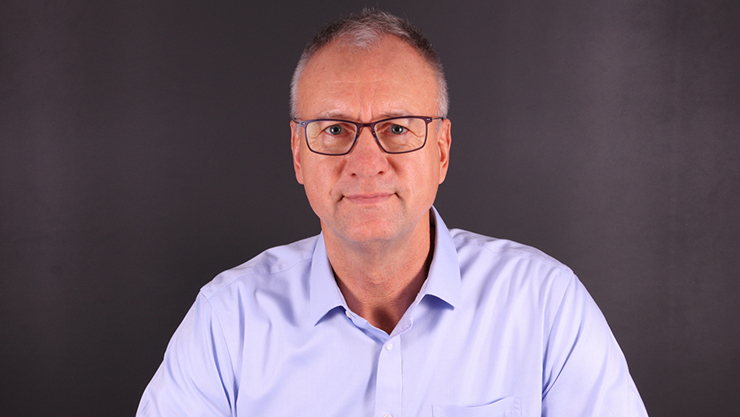After nearly a quarter century running a brand experience and live event agency he founded, Jim Etzel is giving back to the community as CEO of the newly rebranded Sport Oregon.
With ETZEL Agency, the native Oregonian and University of Portland graduate helped win major-league event business and fostered partnerships with brands and organizations like the Olympic trials,
IAAF, ESPN, the College Football Playoff, USA Today/Gannett, TrackTown USA, Nike, adidas, MLS, LPGA and NBC Sports Northwest.
When the top spot at the Oregon Sports Authority (its past name) became vacant in 2017, Etzel was like the rest of the
Portland and Oregon movers and shakers in the events world—he wondered who would get the job. After a lot of discussion in that circle, the opinion seemed to settle on Etzel as a great candidate. He applied and won the role, which he began on Jan. 1, 2018, after stepping down as agency CEO and board chairman.
Portland is a major player in the sports world, not just because of its pro teams-the NBA's Blazers, MLS' Timbers and the NWSL's Portland Thorns, but because of it hosts the headquarters of sports apparel corporations like Nike, Adidas and Columbia Sportswear, all willing and strong event partners. Track and field is synonymous with Oregon. Finally, the state has natural resources for outdoor lovers, and has one of the nation's fittest populations. Etzel, with his agency work, was deeply involved in that sports and business mix for a quarter century. Connect Sports discusses how life is different for Etzel in the relatively new post.
Why did you pursue the Sports Oregon job?
It wasn’t a job I was looking for. I had to be talked into it and talk myself into it. I was quite content at our agency and that was kind of the thing I had to get my head around was stepping out of that world and out of something I had founded and had put all my energy into for the previous 23 years. It helped that our agency had a strong leadership team that we built and had proved to be sustainable over 20 plus years. I eventually talked myself into, "Hey, this is something I could see myself doing and I could also see the agency not just survive but thrive if I stepped out."
What has the first year and a half been like?
I had an inherent advantage over other candidates because I knew my way around the whole state. I didn’t have to be walked around by our board to a bunch of breakfasts and lunches and coffee meetings saying, 'Hey, this is our new exec director.' I was able to hit the ground running relationally. There were some stakeholders I didn't have a relevant relationship with so there was a get-to-know-you phase, but at least they knew of me or knew someone I knew. Listening to the stakeholders from this seat instead of the seat I was used to, I was able to quickly either follow their lead or lead them into thoughts I already had about how we can accomplish more.
What are the immediate goals?
There's a just a lot of things that are pretty unique attributes that help us stand out that we could leverage in a bigger way. The Blazers and Timbers and Thorns, for instance. How do we go in and leverage their successes and resources to drive more economic benefit for our communities? To me, their successes are leverageable assets for us. Their support of our mission, we can leverage that even more, whether it's pursuit of all-star games or other special events they're uniquely positioned to help pull in alongside of us. Their spirit of community makes my job easier and the opportunities bigger.
The commitment those three franchises have made to the community is significant and it's aligned with our mission. None of those companies (Nike, adidas, Columbia Sportswear) need more branding in the state, but they all work and live here and have deep commitments here and want to improve everything across the board. The big three have been longtime supporters of our mission and committed to how we leverage what we have here differently and to a higher level.
What are some tactics?
We've spent a lot of time developing a comprehensive strategic plan for the next three to five years that we'd hold ourselves accountable to. One thing we knew going into that was changing our business model. We're fortunate to have support from corporations and individuals and we do get some from Travel Oregon and Travel Portland. But we're not going to be able to double the size of the organization by finding another 180 corporations to support us.
By looking at our peer models around the country where we were really missing it was not having an owned event portfolio. Events that made sense for our region, fairly moderate risk and strong growth potential events. We've been laying the groundwork on that strategy for the last couple months and are committing into the development of that. We can wake up three years from now and have 10 to 12 annual events that will create a predictable revenue stream with very, very moderate and controlled risk and will help us drive mission through community impact and creating a bid fund.
My biggest challenge is to put us on equal footing with our peer group. We have six full time employees. We've punched above our weight for a long time. I want to make us a top 20 sports commission, both from our business model but also performance. Our performance has been there at times but our resources weren’t there for it to happen all the time.


